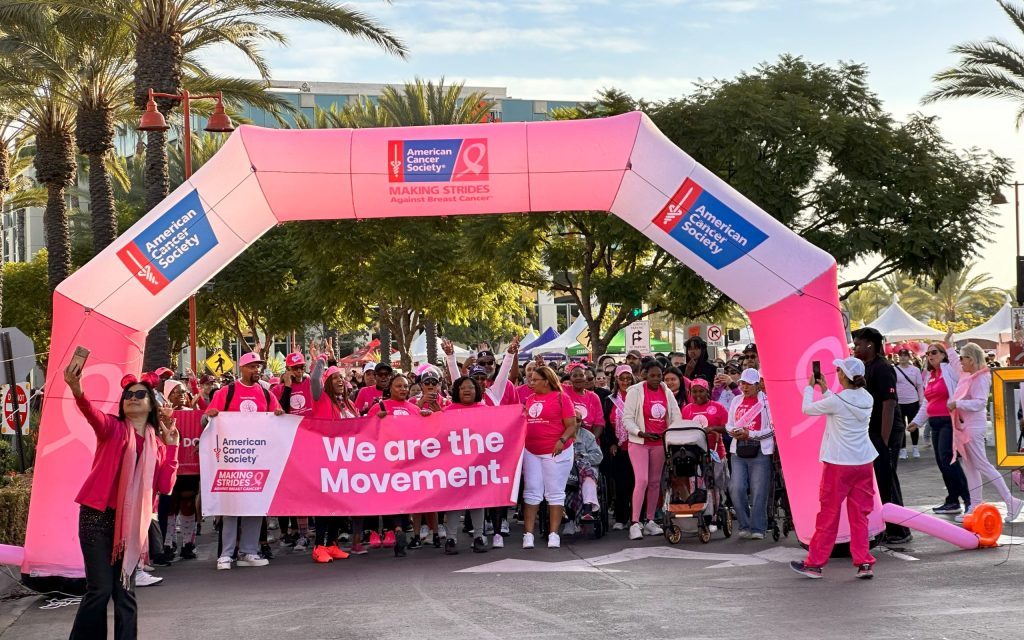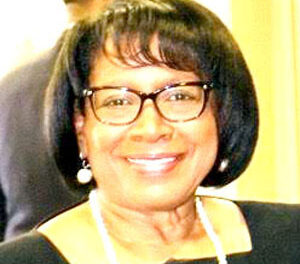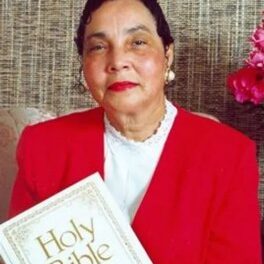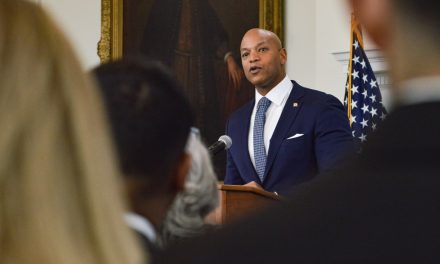By Ariyana Griffin
AFRO Staff Writer
agriffin@afro.com
The American Cancer Society and the Los Angeles chapter of Making Strides Against Breast Cancer hosted their annual walk on Oct. 19 in Cerritos, Calif.
The noncompetitive 5k walk provided an open space for thousands of participants to gather and support each other. It was also a fundraiser to help the American Cancer Society fund cancer research, patient support and further efforts to end breast cancer. Survivors, caregivers, family members, supporters and the currently diagnosed came together during National Breast Cancer Awareness Month, which takes place in October.
Taunya Tutt shared that bringing awareness to the community aspect is essential. “Some people go through this and think they’re alone, or their story is specific to them. But, if you have this community, you talk and can find out you are going through the same thing I’m going through,” she said.
According to the American Cancer Society, “breast cancer is the most common cancer in women in the United States, except for skin cancers. It accounts for about 30 percent, or 1 in 3, of all new female cancers each year.”
There are massive disparities when it comes to race and breast cancer diagnosis due to inequalities in the social determinants of health (SDOH). Black women are the largest group to be affected by breast cancer and are more likely to die than any other group.
The American Cancer Society stated that “Black women have the highest death rate from breast cancer.” The high rate is due to Black women having “a higher risk of triple-negative breast cancer, more than any other racial or ethnic group.”
Similarly, Hispanic women are highly impacted by breast cancer. The Breast Cancer Research Foundation found that “Hispanic women and Latinas are more likely to be diagnosed at a younger age and with more aggressive disease such as triple-negative breast cancer, which has fewer targeted treatments.” It is also reported that they are likely to be “diagnosed at more advanced stages.”
Triple-negative breast cancer is described by the American Cancer Society as “an aggressive type of invasive breast cancer.” It is different from other types of breast cancer because “it tends to grow and spread faster, has fewer treatment options, and tends to have a worse prognosis (outlook).”
The name comes from the cancer cells not having “estrogen or progesterone receptors (ER or PR) and also don’t make any or too much of the protein called HER2. (The cells test ‘negative’ on all 3 tests.)”
Monique Crow, a two-time breast cancer survivor, shared that she was first diagnosed with breast cancer in 2016. The invasiveness led to her having a double mastectomy that year. The cancer returned in 2022 after she found a lump in her scar, and she has since had radiation and surgery.
“I’m very transparent about what I’ve been through. I like to share with other women – not just survivors – because early detection is definitely key to surviving,” Crow told the AFRO. “I encourage women to make sure they do their annual mammogram and young women check their breasts monthly. I’ve met so many young women in their 20s, 30s and 40s that have gotten breast cancer–it’s not just a middle-aged woman’s thing.”
She shared that if something feels wrong during a monthly home breast exam, go to a professional and advocate for yourself and your body.
“I also found out by going through this [that] you have to advocate for yourself because the doctors, a lot of the time, will downplay a lot of stuff, especially with African-American and Latina women. We have to fight harder,” Crow said.
Kristina Martel, the strategic director of diversity, equity and inclusion for the California, Guam and Hawaii division of the American Cancer Society, shared the work that they are doing to fight breast cancer and how racism directly impacts women who are diagnosed.
The American Cancer Society is conducting its first-ever lifestyle study, focusing on the lifestyle choices of African-American and Afro-Latina women, to investigate over the course of 30 years why the incidence and mortality numbers are higher in the Black community.
The goal is to “find out why it is that Black women have a higher risk of cancer than any other ethnic population,” said Martel. “We know that lifestyles have a lot to do with it because of the social determinants of health and racism. Those are the things that we’re really diving deep into for the next generation of Black women.”
The post Annual 5K walk boosts breast cancer awareness and support appeared first on AFRO American Newspapers.


















